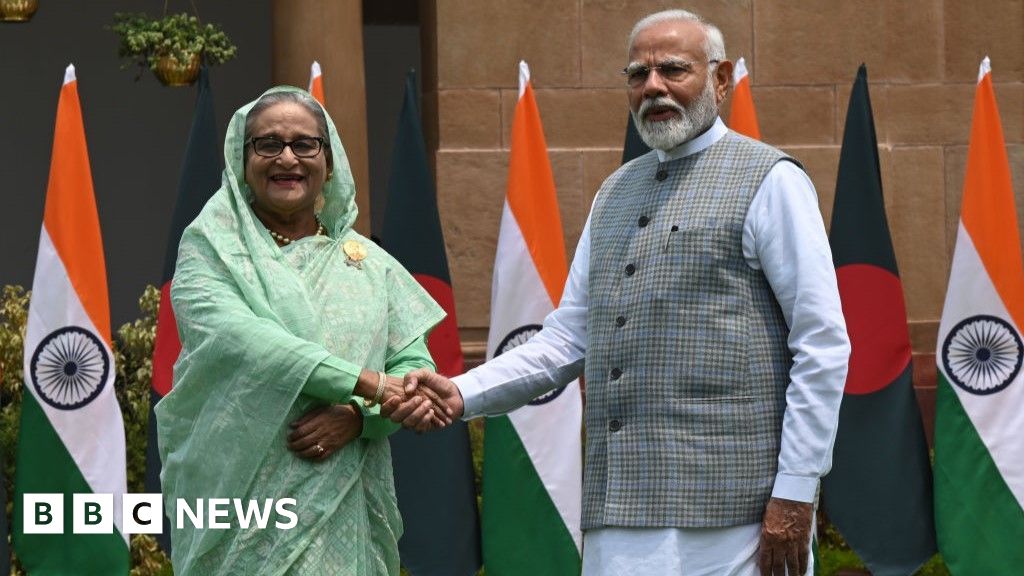Democrats to hold off on early nomination of President Biden this month amid party outcry
Democratic National Committee Halts Accelerated Virtual Roll-Call Vote Amidst Party Dissent In an unforeseen turn of events, the Democratic National Committee (DNC) has decided to pause its expedited virtual roll-call vote to confirm President Joe Biden as their presidential nominee. This decision follows considerable backlash from within the party, showcasing the complex dynamics and internal […]

Democratic National Committee Halts Accelerated Virtual Roll-Call Vote Amidst Party Dissent
In an unforeseen turn of events, the Democratic National Committee (DNC) has decided to pause its expedited virtual roll-call vote to confirm President Joe Biden as their presidential nominee. This decision follows considerable backlash from within the party, showcasing the complex dynamics and internal conflicts that are shaping the Democratic Party as it heads towards the 2024 election.
Delayed Nomination Vote: A Tactical Move?
Despite postponing the accelerated vote, the Democrats remain committed to nominating Biden virtually before August 7, just ahead of the Democratic National Convention scheduled from August 19 to 22 in Chicago. This move underscores a strategic effort to balance procedural transparency with practical necessities dictated by state election laws.
Backdrop of Internal Disputes
The nomination timeline was detailed by Minnesota Governor Tim Walz and the Reverend Leah D. Daughtry, co-chairs of the DNC’s Convention Rules Committee, in a letter to committee members. This announcement followed a letter from House Democrats urging the DNC to abandon plans for a fast-tracked vote and instead wait until the convention, highlighting the urgency of this internal disagreement.
Legal Considerations and Procedural Transparency
The DNC’s insistence on a virtual roll-call vote by August 7 is not merely a procedural quirk but a necessary step to preempt potential legal challenges. These challenges stem from a protracted ballot dispute in Ohio and ballot deadlines in various states, threatening to exclude Biden from key state ballots if not resolved promptly.
“Our primary goal is not to expedite the process but to maintain our tradition of transparency and commitment to an effective nominating process,” Walz and Daughtry clarified. Their statement aims to reassure party members and the public of the DNC’s dedication to a fair and transparent nomination process.
Ohio’s Ballot Dispute: The Catalyst for Change
The DNC’s decision to initially opt for an early nomination vote was largely influenced by the situation in Ohio. The state’s Republican Secretary of State, Frank LaRose, had threatened to exclude Biden from the ballot unless he was formally nominated at least 90 days before the election, necessitating a nomination by August 7. This prompted Ohio Republican Governor Mike DeWine to convene a special legislative session, ultimately resulting in legislation that adjusted the deadline to 65 days before the election.
House Democrats Push Back
Despite the resolution in Ohio, a faction of House Democrats has argued that the early nomination vote is now unnecessary. They contend that this expedited process stifles debate and prematurely shuts down any potential changes to the Democratic ticket. This sentiment was encapsulated in their draft letter to the DNC, which described the virtual roll-call as an “extraordinary and unprecedented action.”
Broader Implications for Ballot Access
The concerns extend beyond Ohio, as the DNC highlighted similar ballot access issues in states like Washington, Oklahoma, Virginia, California, and Montana. These states have ballot deadlines that precede or coincide with the convention, further complicating the nomination process.
DNC Leadership’s Defense
During a press conference in Milwaukee, site of the Republican National Convention, Governor Walz defended the DNC’s approach, emphasizing the procedural necessities that dictate the timeline. He dismissed the criticisms as uninformed, suggesting that the skeptics are unaware of the intricate procedural requirements.
Calls for Biden’s Withdrawal
The internal dissent is compounded by a vocal contingent of Democratic lawmakers who have publicly called for Biden to withdraw from the race. This follows a particularly challenging debate performance against former President Donald Trump, raising concerns about Biden’s mental acuity and stamina. Despite these calls, Biden remains steadfast in his commitment to the campaign.
Conclusion
As the Democratic Party navigates these turbulent waters, the postponed virtual roll-call vote underscores the delicate balance between procedural adherence and party unity. With internal conflicts and external legal challenges shaping the path forward, the DNC’s decisions in the coming weeks will be crucial in determining the party’s cohesion and strategic positioning as it heads into the 2024 election.
The DNC’s Nomination Timeline: Navigating Complex Political Terrain
Understanding the DNC’s Calendar Conundrum
The Democratic National Committee’s intricate dance around the nomination timeline reveals the multifaceted challenges faced by political parties in adhering to both internal protocols and external legal constraints. The necessity to adapt swiftly to changing legal landscapes while maintaining party unity is a testament to the complex nature of modern political strategizing.
Strategic Importance of the Virtual Roll-Call Vote
The decision to proceed with a virtual roll-call vote before August 7 is pivotal. It not only addresses immediate legal concerns but also sets a precedent for how political parties might navigate future electoral challenges. The emphasis on transparency and procedural integrity is a calculated move to bolster public confidence in the nominating process.
Ohio’s Legislative Maneuvering: A Case Study
Ohio’s legislative response to the ballot dispute serves as a critical case study in the interplay between state and national electoral strategies. Governor Mike DeWine’s swift action to amend the deadline underscores the importance of state-level legislative agility in addressing national electoral challenges. This maneuvering highlights the intricate balance between state and national political imperatives.
Internal Party Dynamics: Managing Dissent
The internal dissent within the Democratic Party reflects broader concerns about the party’s strategic direction and leadership. The pushback from House Democrats underscores the ongoing debates about Biden’s electability and the party’s future. Managing this dissent while maintaining a unified front is a key challenge for the DNC as it heads into the convention.
Legal Precautions and Electoral Strategy
The DNC’s legal precautions extend beyond immediate concerns in Ohio. By addressing potential legal challenges in multiple states, the DNC is preemptively safeguarding Biden’s candidacy against a myriad of possible obstacles. This proactive approach is indicative of a broader strategic vision aimed at ensuring ballot access across the nation.
Political Implications of Early Nomination
The political implications of an early nomination are profound. By securing Biden’s nomination ahead of the convention, the DNC aims to consolidate support and mitigate internal divisions. This strategy also seeks to streamline the campaign’s focus on the general election, reducing potential disruptions from protracted nomination disputes.
Future of Democratic Party Leadership
The calls for Biden’s withdrawal highlight ongoing debates about the future of Democratic Party leadership. These debates are not just about the immediate election but also about the long-term strategic direction of the party. The outcome of these internal conflicts will significantly shape the party’s trajectory in the coming years.
Conclusion: Navigating Political Complexity
The DNC’s decision-making process around the nomination timeline exemplifies the intricate balance between legal constraints, internal party dynamics, and strategic electoral considerations. As the party navigates these complexities, the emphasis on transparency, legal prudence, and strategic foresight will be crucial in shaping its path forward. The coming weeks will be a test of the DNC’s ability to manage internal dissent, adhere to procedural integrity, and position itself effectively for the 2024 election.















